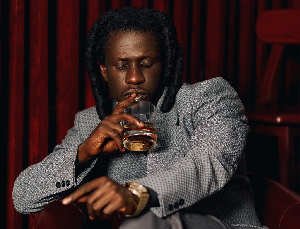When a criminal offence is committed, the offence is said to have been committed against the State, even though some individual or group of individuals may have suffered as a result of the crime. The criminal law is designed to check violation of the law as well as to protect the rights of the individual. Even though the commission of a crime may lead to bodily injuries to a person
or loss of some personal rights, the Ghanaian criminal law allows only the Republic to prosecute the offender.
Private prosecution of crime has been abolished under Article 88 of the 1992
Constitution. Criminal prosecution is now the sole prerogative of the Republic, represented by the Attorney-General. In most criminal offences, individual victims are directly aggrieved or affected by the criminal acts, but they do not have the right to prosecute their offenders. For instance, victims of rape,
defilement, assault, stealing, unlawful damage to property, and several other offences suffer loss of personal rights.
However, a victim of crime has no recognized standing in the criminal process. A criminal trial is not a contest between the accused and the victim. Rather, a criminal trial is a contest between the accused and the Republic of Ghana. This is why criminal prosecution is conducted in the name of the Republic. Article 125(1) of the Constitution provides that justice emanates from the people and shall be administered in the name of the Republic by the Judiciary.
Criminal trial has a public character. In the case of Baah versus The Republic [1991] 1 GLR 483, Justice Kpegah cautioned that the sanctity and character of the criminal trial as a contest between the accused and the Republic must be maintained. What this means is that no individual has the right to institute a criminal action against an accused person. Where the prosecutor is of the view
that a criminal suspect should not be prosecuted, the victim or complainant cannot compel the prosecutor to prosecute.
The law permits a victim of crime or any other person to report the crime to the police and where necessary to act as prosecution witness. Beyond this, the victim has no other role to play in the prosecution of the offender. A complainant or victim of crime has no right to have the alleged offender prosecuted. Equally, the criminal victim has no right to join the trial as a party, or appeal against the judgment of the court. No matter how obvious the interest of a complainant may be, the criminal prosecution is at the instance of the Republic, and the complainant cannot determine what should, or should not, be done in the case.
In the case of Mbrah versus Johnson, [1973] 2 GLR 213, Justice Edward Wiredu stated the position of the law at page 218 as follows:
“In criminal prosecutions by the Republic, a complainant may have some interest,
but he or she is principally and invariably merely a witness. She cannot decide in which court the prosecution of the case is to be conducted. Her interest in the fairness of the trial is submerged into the dominant interest of the Republic and in fact her witness allowance is paid out of public funds depending on the number of the attendances. His or her interest is not one which would entitle him or her to appeal against the decision of the court, if he or she feels aggrieved. The accused on the other hand is a principal party.”
The criminal process is regulated by well-defined rules, principles and norms of justice which must be strictly adhered to by all the players involved in the process. A disturbing anomaly in the Ghanaian criminal justice system is where the police deny criminal suspects bail merely because complainants are opposed to the grant of bail. It is unfortunate that some police officers allow
themselves to be controlled, manipulated and directed by complainants. It is very common to see complainants practically dictating and telling the police what to do and what not to do to criminal suspects.
Complainants and victims of crime are very important players in the criminal process.
However, they only serve as witnesses in the criminal process. Complainants do not control the criminal process. No complainant has the right to have an offender arrested, detained, prosecuted or punished. A complainant cannot instruct the police to arrest, detain or not to grant bail to a criminal suspect. The police do not need the consent of the complainant before they release a suspect on bail.
It is wrong for the police to ask a criminal suspect to beg or plead with the complainant before bail may be granted. To grant bail or not forms an important part of prosecutorial power and discretion. The discretion to grant or deny bail must be guided by law. Bail cannot be denied on fanciful and whimsical grounds. The grounds on which a person may be granted or denied bail are well known. The suspect must be prepared to appear to stand trial; he should not interfere in
police investigations while on bail; there must be independent sureties to execute the bail bond; and the suspect must have a known and fixed place of abode.
Where legal grounds exist, the criminal suspect is entitled to be released on bail. It is unlawful for the police to keep a criminal suspect where there are no compelling legal reasons for denying him bail. It is improper for the complainant to ask, instruct or induce the police to deny bail to the criminal suspect. It is a professional misconduct for a police officer to deny a person bail merely because the complainant disagrees with the grant of bail.
Opinions of Friday, 31 March 2023
Columnist: Daniel Korang Esq.
Police do not need the consent of complainants to grant bail to criminal suspects
Entertainment














